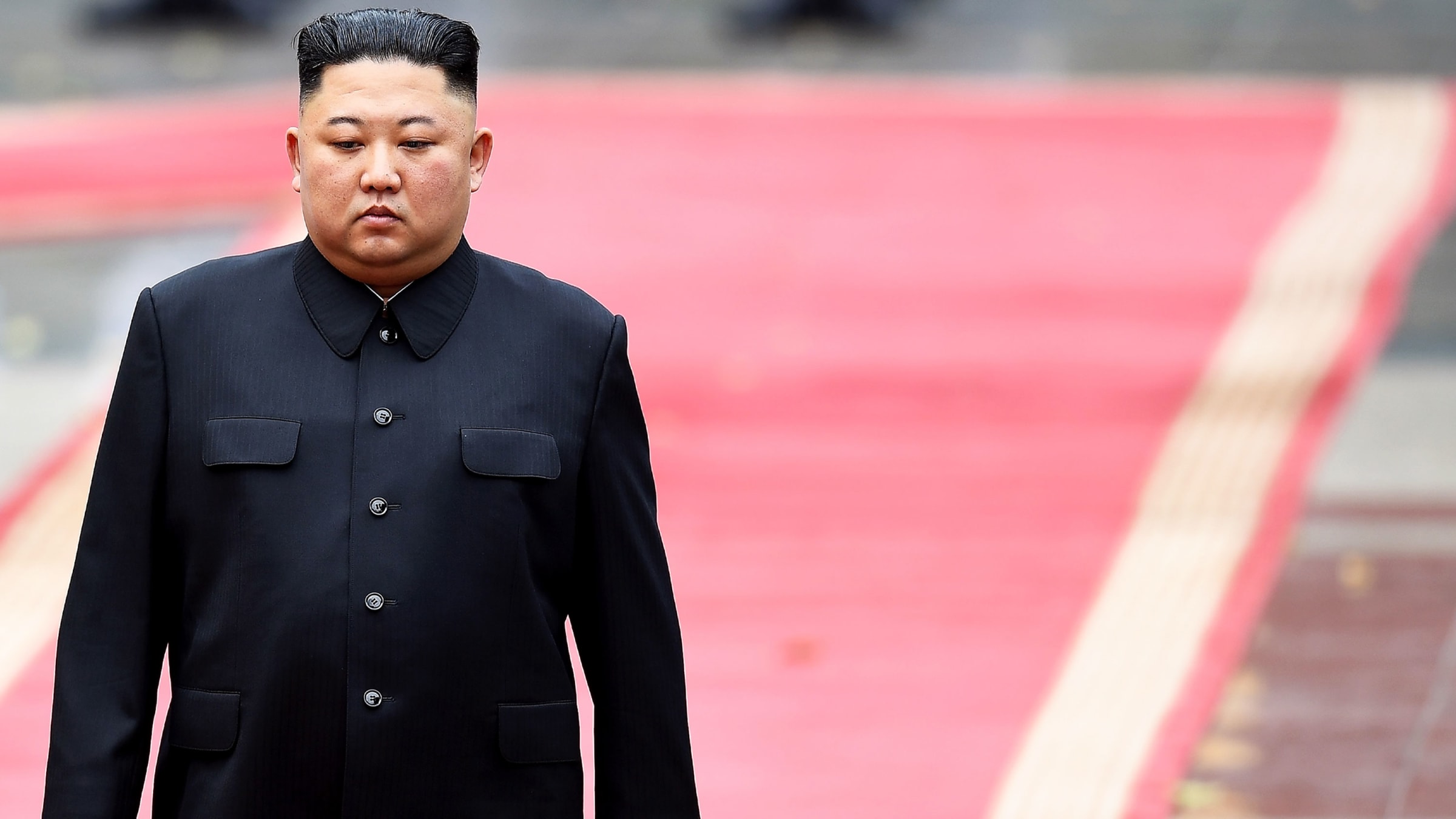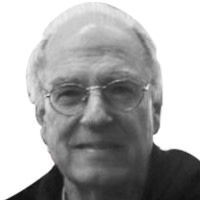New Kim Jong Un Purge Suggests North Korea Is in Deep Shit

Manan Vatsyayana/AFP/Getty
Military leaders bore the brunt of the dictator’s frustration indicating that the economic crisis in North Korea is spiraling out of control.
North Korea’s leader Kim Jong Un has demoted his country’s highest-ranking military leader in the onset of a purge of those held responsible for a mysterious “great crisis.”
The blame game indicates that North Korea is “facing major economic and health issues because of COVID,” said Bruce Bechtol, a former Pentagon intelligence analyst and author of numerous books and studies on North Korea’s leadership. “They have done their best to hide it... [but] the country is in big trouble right now.”
Having “already reshuffled positions,” said Bechtol, “The next big step would be an uptick in executions in order to assign blame.”
The dismissal of Ri Pyong Chol from the politburo of the Workers’ Party was confirmed in a photograph released by North Korea showing dozens of top party officials at an elaborate ceremony marking the 27th anniversary of the death of Kim Il Sung, founder of the North Korean regime and Kim’s grandfather. Conspicuous in the picture is Kim’s younger sister, Kim Yo Jong, who’s not on the politburo but still believed to be the country’s second most powerful leader.
In an ongoing campaign to rein in the power of the armed forces, Ri is pointedly in civilian garb in the formal group photograph in the shrine where the bodies of Kim’s grandfather and father, Kim Jong Il, lie embalmed under glass. His uniform would have displayed his rank as a marshal above a chest full of military medals.
The exact nature of the crisis is not clear, but the armed forces are widely blamed for not distributing foodstuffs to a populace perpetually underfed if not starving. That failure is assumed to have been one big reason for downgrading top military leaders.
North Korea “is in economic trouble” from sanctions plus “China’s failure to provide a big food shipment,” said analyst Shim Jae-hoon, formerly with Yale Global. “Food shortage is turning acute now. Kim must guard his dwindling hard currency lest he runs out of emergency funds.”
“People are dying for lack of food and medicine,” wrote Jiro Ishimaru for Asia Press, a news agency in Osaka, Japan, that often reports on the suffering of North Koreans. “Since the beginning of June, the lives of the North Korean people have been deteriorating.”
Ishimaru blamed the crisis on Kim Jong Un for having “closed the borders to prevent the spread of the coronavirus, preventing people from coming in and out of the country.” He said he obtained information through a Chinese cellphone smuggled into North Korea. News of North Korea’s troubles is still getting out that way despite severe punishment, including death, for those caught using Chinese mobiles.
The campaign against North Korea’s military leadership also affected the standing of numerous others, notably Pak Jong Chon, shown in the picture still in uniform but with a somewhat less exalted military rank.
“With his shoulder insignia changed, it appears Pak was demoted from marshal of the Korean People’s Army, the highest military rank under Kim Jong Un, to vice-marshal,” according to NK News, an independent website in Seoul. Also, “Defense Minister Kim Jong Gwan appeared to have lost his vice-marshal rank. His shoulder insignia showed four stars instead of the marshal’s star.”
The reshuffling at the top made clear Kim’s discontent with the military leadership, over which he has to exercise firm control to be sure of his omnipotence, on top of a purge typical of Kim’s dynastic rule.
Kim Jong Un “seems to have resumed a reign of terror by purging scores of officials over his own disastrous failings amid a growing food shortage,” said the conservative Chosun Ilbo, South Korea’s biggest-selling newspaper.
The paper quotes Rodong Sinmun, North Korea’s major party newspaper, as warning officials not to be “losers of the revolution.” Magnanimously, Rodong Sinmun said “mistakes made in the process are forgivable” but then added, ominously, that “causing critical harm to our party, country and people due to irresponsibility and negligence of duty is never acceptable.”
Kim Jong Un’s decision to honor the anniversary of the death of his grandfather simply rather than mark the occasion with another display of military prowess adds to the impression of a desperate effort to shore up the economy while downplaying the armed forces. Both Ri and Pak were major figures in the program for test-firing ballistic missiles and developing nuclear warheads, which has been out of the news of late while Kim tries to fire up his economy.
Through it all, his younger sister, Kim Yo Jong, ranks high as an adviser and policy-maker. She was among the speakers at the recent meeting of the party’s central committee at which her brother blasted the party faithful for having been “lazy,” precipitating “a significant crisis for the country and people.” Kim Yo Jong is the daughter-in-law of Choe Ryong-hae, the country’s second-highest leader as head of the standing committee of the Supreme People’s Assembly. Choe’s relationship with Kim Yo Jong, as well as his lineage as the son of an ally of Kim Il Sung against the Japanese in China before the Japanese surrender in 1945, fortifies the power structure.
“Is she a Catherine de’ Medici or just a Kellyanne Conway, or something in between?” asked David Straub, a former senior U.S. diplomat in Seoul. “I doubt that anyone outside the inner circle in Pyongyang knows. But since the dynasty is so important and she appears to be close personally to Kim Jong Un, I assume she is quite powerful but only by extension and her own apparent ruthlessness.’”
Big brother, meanwhile, “bears full responsibility for this gratuitous measure” of shutting the North’s borders, said Straub. “Did he do so because he is arbitrary and anti-scientific,” Straub asks, “or was it somehow part of an effort to impose greater control over the party and people?
“They are very worried about the COVID situation,” Victor Cha, the Georgetown professor in charge of Korea issues at the influential Center for Strategic and International Studies in Washington, told The Daily Beast. They’re “still without any vaccine support,” he noted, “and feeling pressure to open some trade with China.” Then too, “Smuggling may have led to some transmission” of the disease—“hence the castigation of party officials.”
In the process, Kim Jong Un sees the chance to tighten his grip on power.
“I believe that the economy is faltering in large part because Kim is trying to strengthen his control of the country by breaking the spread of capitalism, outside influence, and economic independence of the rich,” Bruce Bennett of the RAND Corporation told The Daily Beast, but “Kim’s efforts are undoubtedly destabilizing.” Also interesting, he added, is “Kim’s decision to blame his elites for many of these problems rather than blaming the United States, the traditional scapegoat of problems in North Korea.”
Meanwhile, fear has to be spreading through the ranks.
The reshuffling “is beyond doubt a portent of elites purges to come,” said Lee Sung-yoon, at the Fletcher School of Tufts University. “In North Korea, demotion, scapegoating, punishment, reinforcement of terror, and promotions are often delivered as a single package.” The “grave situation” that Kim mentioned, Lee told The Daily Beast, “likely refers to an exaggerated pretext for requisite harsh measures rather than a major COVID outbreak.”
There is yet another reason for concern: Kim’s health. His appearance leading the entourage at the shrine to his father and grandfather dispelled rumors that he might have suffered a cerebral hemorrhage, but the photograph of him front and center at the memorial showed he had indeed lost more than 40 pounds. Now believed to pack about 300 pounds on his five-foot-eight-inch frame, he apparently went on a weight-loss campaign while out of public view for nearly three weeks.
“A careful review of comments in the North Korean media, plus Kim’s recent political behavior and likely intentions, suggest that Kim’s weight loss is intentional and related to health concerns,” wrote Dr. Kenneth Dekleva of the University of Texas Southwestern Medical School on the website of 38North, which tracks North Korea for the Stimson Center in Washington. “A desire on his part to improve his health... and his actual health have huge political implications for the Korean Peninsula.”
